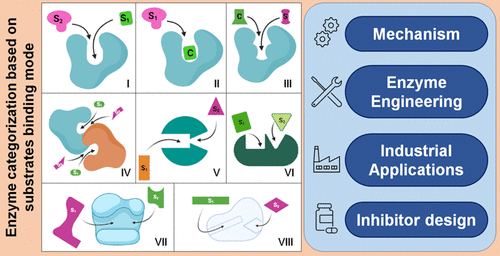EnzymoGenius™ specializes in the modification of enzymes to broaden substrate specificity, unlocking new possibilities for industrial applications and scientific research. With a commitment to precision and innovation, our enzymatic engineering service stands at the forefront of substrate diversification, delivering solutions that empower industries and researchers alike.
Overview
Modifying enzymes plays a pivotal role in substrate diversification, driving advancements in research that aim to elucidate their catalytic mechanisms and substrate specificity. These enzymes, such as methyltransferases and acetyltransferases, orchestrate post-translational modifications on proteins, nucleic acids, and small molecules. The dynamic landscape of substrate diversification mediated by these enzymes has garnered significant attention in recent studies. Investigations have unveiled intricate structural insights into how modifying enzymes recognize and modify diverse substrates, shedding light on the specificity determinants governing their catalytic activities. Moreover, cutting-edge techniques, including structural biology and mass spectrometry, have been instrumental in unraveling the molecular intricacies of these enzymes. Such advancements contribute to our comprehensive understanding of cellular processes, offering potential applications in therapeutic interventions and biotechnology.
 Fig. 1 Structure and cooperativity in substrate-enzyme interactions. (Rajakumara E, et al.,2022)
Fig. 1 Structure and cooperativity in substrate-enzyme interactions. (Rajakumara E, et al.,2022)
Service Process
- Enzyme Assessment
Evaluate the target enzyme to identify areas for modification.
- Molecular Design
Employ advanced molecular design techniques to engineer enzymes for enhanced substrate binding.
- Gene Editing
Utilize state-of-the-art gene editing tools to implement targeted modifications in the enzyme's genetic code.
- Expression and Purification
Optimize the expression of modified enzymes and purify them to ensure high quality and efficiency.
- Functional Testing
Rigorous testing of engineered enzymes to validate enhanced substrate specificity and performance.
Key Differentiators from Other Companies
- Precision Engineering
EnzymoGenius™ distinguishes itself through precise molecular modifications, ensuring optimal substrate diversification without compromising enzyme integrity.
- Customized Solutions
Our service offers tailor-made enzymatic solutions, addressing the unique requirements of each client and application.
- Cutting-Edge Technology
Leveraging the latest advancements in molecular biology and gene editing, we stay ahead in providing state-of-the-art enzymatic engineering services.
Application Areas We Can Serve
EnzymoGenius™ serves a spectrum of application areas, including but not limited to:
- Protein Engineering for Biocatalysis
Enabling enzymes to catalyze a broader range of substrates for enhanced biocatalytic processes.
- Metabolic Pathway Optimization
Modifying enzymes involved in metabolic pathways to expand substrate utilization for improved bio-production.
- Environmental Remediation Enzymes
Engineering enzymes for effective degradation of diverse environmental pollutants.
- Pharmaceutical Enzyme Modification
Tailoring enzymes for pharmaceutical applications to enhance drug synthesis and formulation.
EnzymoGenius™ delivers unparalleled enzymatic engineering services, employing a meticulous process that encompasses enzyme assessment, molecular design, gene editing, expression, purification, and functional testing. Our precision engineering, customized solutions, and utilization of cutting-edge technology set us apart from the competition. For inquiries and collaborations, please contact us to explore the possibilities of tailored enzymatic solutions for your specific needs.
Reference
- Rajakumara, E.; et al. Structure and cooperativity in substrate-enzyme interactions: perspectives on enzyme engineering and inhibitor design. ACS Chemical Biology. 2022, 17(2): 266-280.

































 Fig. 1 Structure and cooperativity in substrate-enzyme interactions. (Rajakumara E, et al.,2022)
Fig. 1 Structure and cooperativity in substrate-enzyme interactions. (Rajakumara E, et al.,2022)